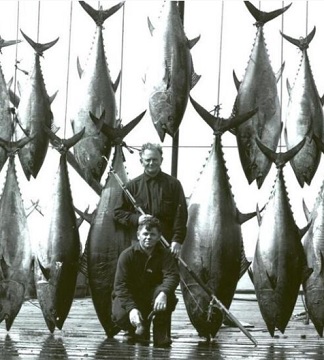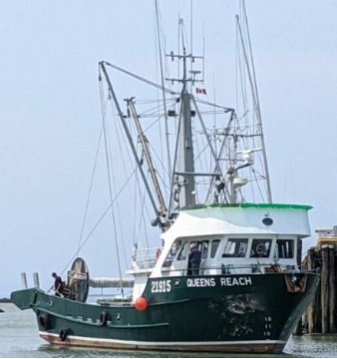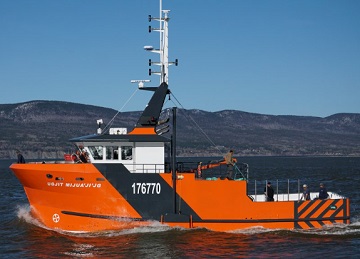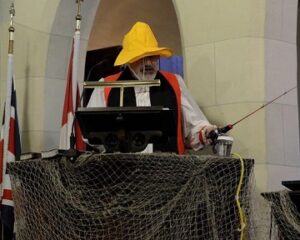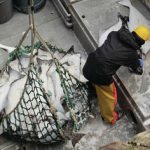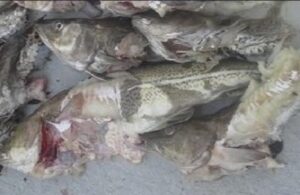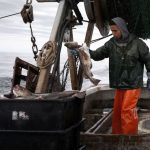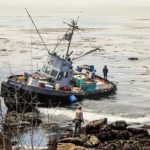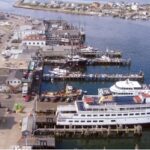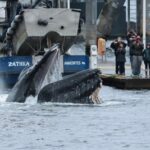Tag Archives: canada
Government of Canada invests over $65M in Marine Search and Rescue services as part of the Oceans Protection Plan
 Today, the Minister of Fisheries, Oceans and the Canadian Coast Guard, the Honourable Diane Lebouthillier announced $24.29 million in funding, with $3.37 million ongoing, to expand Indigenous search and rescue training and exercising on all coasts, and a $34.1 million investment in the Canadian Coast Guard Auxiliary, with $4.85 million ongoing, through the Oceans Protection Plan over the next nine years. This funding will increase community-based search and rescue capacity across the country and save critical time during incidents. It will support auxiliary units with training and exercising and purchasing new equipment. This funding will also help with search and rescue training for members of Indigenous coastal communities who play a key role in marine safety, have expertise in navigating local waters, and share ties to Canada’s oceans and waterways that span generations. >>click to read<< 13:53
Today, the Minister of Fisheries, Oceans and the Canadian Coast Guard, the Honourable Diane Lebouthillier announced $24.29 million in funding, with $3.37 million ongoing, to expand Indigenous search and rescue training and exercising on all coasts, and a $34.1 million investment in the Canadian Coast Guard Auxiliary, with $4.85 million ongoing, through the Oceans Protection Plan over the next nine years. This funding will increase community-based search and rescue capacity across the country and save critical time during incidents. It will support auxiliary units with training and exercising and purchasing new equipment. This funding will also help with search and rescue training for members of Indigenous coastal communities who play a key role in marine safety, have expertise in navigating local waters, and share ties to Canada’s oceans and waterways that span generations. >>click to read<< 13:53
FISH HARVESTERS UNION CLAIMS HEALTHY COD POPULATIONS
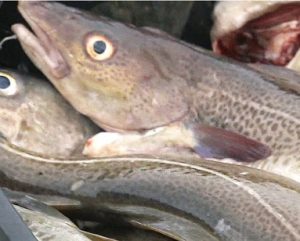 The Fish, Food and Allied Workers Union (FFAW) has received reports confirming the presence of healthy cod populations near our shores. The union has been advocating for an increase in the total allowable catch for several years, but their efforts have been largely unsuccessful. The Department of Fisheries and Oceans (DFO) takes a cautious approach when determining quotas, despite the fact that the pressure on the cod stock from harvesting activities is minimal. FFAW Secretary Treasurer, Jason Spingle, is urging the Canadian government to conduct a thorough stock survey to obtain more comprehensive scientific data. >click to read< 10:22
The Fish, Food and Allied Workers Union (FFAW) has received reports confirming the presence of healthy cod populations near our shores. The union has been advocating for an increase in the total allowable catch for several years, but their efforts have been largely unsuccessful. The Department of Fisheries and Oceans (DFO) takes a cautious approach when determining quotas, despite the fact that the pressure on the cod stock from harvesting activities is minimal. FFAW Secretary Treasurer, Jason Spingle, is urging the Canadian government to conduct a thorough stock survey to obtain more comprehensive scientific data. >click to read< 10:22
Lobster ‘red list’ draws ire, lawsuit from Maine fishers
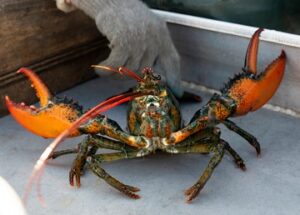 A coalition representing the Maine lobster industry is suing an aquarium on the other side of the country for recommending seafood customers avoid buying a variety of lobster mostly harvested in their state. Industry groups including Maine Lobstermen’s Association are suing the Monterey Bay Aquarium in California for “defamation,” arguing in a lawsuit filed Monday that their prized catch shouldn’t be on a “red list” published by Seafood Watch, a conservation program it operates. Last year, Seafood Watch put lobster from the U.S. and Canada on its list of seafood to avoid due to the threat posed to rare whales by entanglement in fishing gear used to harvest American lobster, the species that makes up most of the U.S. lobster market. >click to read< 15:47
A coalition representing the Maine lobster industry is suing an aquarium on the other side of the country for recommending seafood customers avoid buying a variety of lobster mostly harvested in their state. Industry groups including Maine Lobstermen’s Association are suing the Monterey Bay Aquarium in California for “defamation,” arguing in a lawsuit filed Monday that their prized catch shouldn’t be on a “red list” published by Seafood Watch, a conservation program it operates. Last year, Seafood Watch put lobster from the U.S. and Canada on its list of seafood to avoid due to the threat posed to rare whales by entanglement in fishing gear used to harvest American lobster, the species that makes up most of the U.S. lobster market. >click to read< 15:47
William R. Miller: Why don’t we restore commercial fishing in Erie?
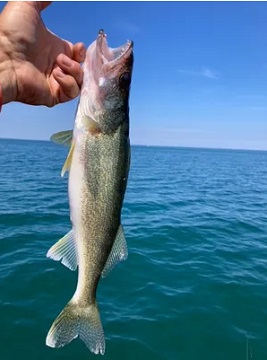 There are two kinds of jobs, those that “create wealth” by bringing money into the region from outside the region and those jobs that “circulate wealth” within the region. Fish we take from the lake, crops that we grow, minerals that we extract from the ground, products that we manufacture, retirees we convince to live here, services provided to outside individuals and organizations, and tourists who we attract, all create wealth for the region. Each wealth-creation job typically supports about three wealth-circulating job in the region. We’ll focus here on one potential source for wealth-creating jobs. In 1890, Erie was the largest, in tonnage, freshwater fishing port in the entire world. Today, my understanding is that Erie is down to one commercial fisherman and the Canadian Great Lakes fishing industry is now about a $1 billion industry. What happened? >click to read< 15:45
There are two kinds of jobs, those that “create wealth” by bringing money into the region from outside the region and those jobs that “circulate wealth” within the region. Fish we take from the lake, crops that we grow, minerals that we extract from the ground, products that we manufacture, retirees we convince to live here, services provided to outside individuals and organizations, and tourists who we attract, all create wealth for the region. Each wealth-creation job typically supports about three wealth-circulating job in the region. We’ll focus here on one potential source for wealth-creating jobs. In 1890, Erie was the largest, in tonnage, freshwater fishing port in the entire world. Today, my understanding is that Erie is down to one commercial fisherman and the Canadian Great Lakes fishing industry is now about a $1 billion industry. What happened? >click to read< 15:45
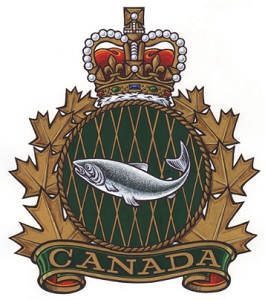
Scientists Level New Critiques of Fisheries and Oceans Canada’s Scientific Rigor
Twenty-five years ago, after the collapse of the Atlantic cod fishery, Jeffrey Hutchings, a preeminent fisheries scientist and professor at Dalhousie University in Nova Scotia, sounded the alarm that Canada’s federal fisheries department was allowing “nonscience influences” in critical decision-making. Writing at the time, he said, “There is a clear and immediate need for Canadians to examine very seriously the role of bureaucrats and politicians in the management of Canada’s natural resources.” Today, a new crop of researchers is once again imploring Fisheries and Oceans Canada (DFO) to change its ways. At the core of their concerns is a number of systemic and structural ways in which DFO gathers, parses, and handles scientific information, and how that advice is passed on to decision-makers. >click to read< 09:20
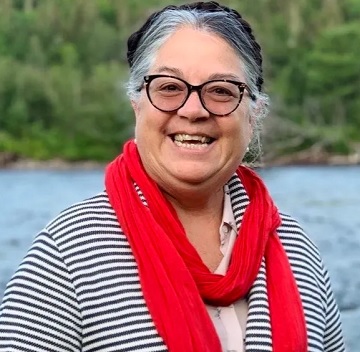
Who is Canada’s newest fisheries minister and what tasks lie ahead for Diane Lebouthillier?
With a marine coastline that measures 243,042 kilometers—the most of any country in the world—Canada’s fishing grounds and Coast Guard service areas touch the Atlantic, Pacific and Arctic Oceans. The mandate of the fisheries minister, as outlined on the Department of Fisheries and Oceans website, is wide-reaching and complex. Her department’s job is to protect Canada’s oceans and waterways and provide economic opportunities to Canadians and coastal communities. Drill down to local issues, however, and there are hundreds. Here’s a look at some of them. >click to read< 19:55
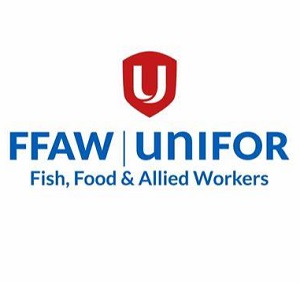
FFAW Welcomes New Federal Fisheries Minister
Prime Minister Justin Trudeau’s federal cabinet shuffle today has announced Diane Lebouthillier as the new Minister for Fisheries and Oceans, replacing the Joyce Murray as the federal head of fisheries management. The Union that represents all inshore fish harvesters in Newfoundland and Labrador looks forward to working with Minister Lebouthillier, hoping for a renewed focus on robust science and economically sustainable management. >click to read< 12:53
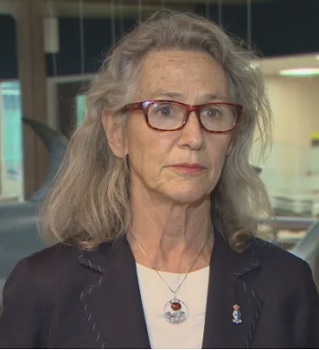
Vancouver MP Joyce Murray won’t seek re-election
Vancouver Quadra MP Joyce Murray has announced she will not run again in the next federal election. Murray is currently serving as the federal minister of Fisheries, Oceans and the Canadian Coast Guard. She announced her decision to not seek re-election on Twitter Tuesday. She says the decision came “after much thought and reflection,” adding this term will be her last. “My work in politics and time serving my community both federally and provincially as an elected official has been the honour of my life,” she said. >click to read< 14:42

Trudeau Government Continues to Mismanage the Fishing Industry While Fish Harvesters and the Processing Industry Lose Opportunity
Conservative Shadow Minister for Fisheries, Oceans and the Canadian Coast Guard, Clifford Small, released the following statement after the Trudeau government refused to increase quotas for Northern Cod and the Atlantic Mackerel moratorium continues: “Trudeau’s Fisheries Minister, Joyce Murray, has once again ignored fishing industry stakeholders and harvesters by refusing to modestly increase fish quotas. A full survey assessment of fish stocks in Newfoundland has not been completed since 2019 and now because the Liberals failed to live up to their multiple promises to the industry, working people who make their living in the fishing industry will suffer. “The Trudeau government has failed to live up to its commitments on fisheries science and they are punishing working people without a second thought as a result. >click to continue< 16:42
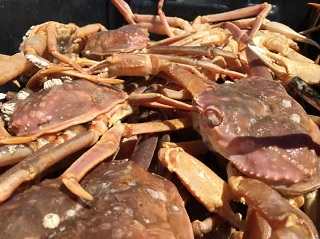
Opinion: Canada failed the N.L. fishery by Harvey Jarvis
The 2023 crash in the price of snow crab and the 1992 moratorium on northern cod have been talked about as the two major catastrophic events in the Newfoundland Labrador inshore fishery. While I totally agree that the two events have inflicted major damage on those who make a living from our ocean’s renewable resources, in my opinion, neither of them is THE major catastrophic event. In 1949, Newfoundland Labrador signed over control and management of the world’s richest renewable resources to Canada. While Canada was supposed to manage those resources to produce maximum benefit to Newfoundland Labrador, the opposite has occurred. >click to read< 13:17

Canadian Wildfire Season Is Upon Us (A Few Engineering Notes on the Season)
In case you haven’t noticed the smell of burnt flannel and soft wood in the air, it is definitely Canadian fire season. This French fried time of year is accompanied by acrid smoke, heavy fog like conditions, and a feeling of having smoked a pack of non-filtered camels without actually being a smoker. With the ocean looking like the backstage of a Snoop Dogg concert it is time to take stock of a few issues that may occur. By JJ Johnson, photos, >click to read< 18:44
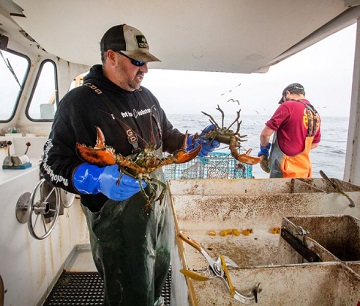
Canadian and American lobster industry confronts ‘ropeless’ traps after whale entanglements
Injuries to endangered North Atlantic Right Whales ensnared in fishing gear have fueled a prominent campaign by environmental groups to pressure the industry to adopt on-demand equipment that only suspends ropes in the water briefly before traps are pulled from the water. To address the problem, the U.S. and Canadian governments have imposed new regulation on lobster and crab fisheries in recent years, including the use of weak links in rope that break if a whale swims through, color-coded rope for tracing, adding more traps per buoy line, and zone closures during whale migration. Washington and Ottawa are now promoting ropeless fishing as a possible long-term solution. But lobstermen, particularly in Maine where 80% of U.S. lobster is caught, are not enthusiastic. >click to read< 08:49

Canadian Company Pleads Guilty to Illegally Selling Harp Seal Oil in the United States
FeelGood Natural Health Stores Ltd. (FeelGood) pleaded guilty today to one count of violating the Lacey Act by knowingly transporting and selling harp seal oil capsules in violation of the Marine Mammal Protection Act (MMPA). According to the plea agreement, FeelGood is a Canadian corporation located in Whitby, Ontario, Canada. Between at least April 2019 and May 2021, FeelGood offered harp seal oil capsules for sale in the United States on both its own webpage and a third-party platform. It did so even though its website on the third-party platform acknowledged, “NOT ship to USA,” and though FeelGood received a notice that some shipments had been seized by the federal government for violation of the MMPA. >click to read< 18:55
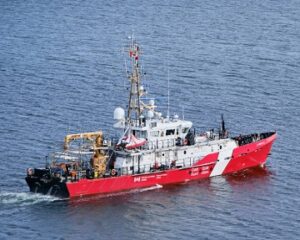
Canadian Coast Guard Plans to Order Up to 61 Small Vessels
Joyce Murray, Minister of Fisheries and Oceans and the Canadian Coast Guard, on Thursday announced $2.5 billion CAD (roughly $1.8 billion USD) for the construction of up to 61 new small vessels and the ongoing replacement of small craft, barges and workboats within the Canadian Coast guard fleet. “This is a critical investment that will help modernize the Canadian Coast Guard’s small vessel fleet,” Murray said. “We are making sure the Canadian Coast Guard has the equipment it needs to keep Canadians and Canada’s waterways safe, while also creating good-paying jobs across the country.” >click to read< 13:29
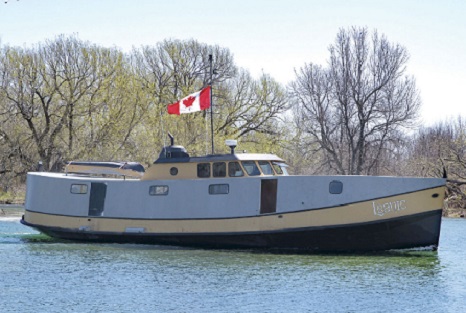
Master of the Leanic: Tim McCormack continues a tradition going back five generations
For Tim McCormack, life doesn’t get any better than being out on the lake in his fishing boat, the Leanic. He says that it’s his “happy place”. “I’ve been doing this since I was knee-high to a grasshopper,” he said. “My father was a fisherman and on my mother’s side my grandfather Mel McIntosh was a fisherman, and his grandfather David McIntosh was one of the first commercial fishermen in this area.” Tim learned the trade and the secrets of the lake from his father and grandfather, and he provided an analogy for his knowledge of the lake that is a little too colourful to print in a family newspaper. Now, he is passing that generational knowledge along to his son, Jordan, who is just a couple of exams away from obtaining his Captain’s licence. >click to read< 11:16

Alaskans poaching Canadian salmon top concern for federal fisheries minister
American fishing boats catching threatened Canadian salmon was flagged as a top concern for federal Fisheries Minister Joyce Murray before meeting with the U.S. ambassador to Canada in March. Over the past decade, and especially in 2021 — commercial fisheries in southeast Alaska have intercepted high numbers of Canadian salmon, particularly threatened sockeye stocks from the Nass, Skeena and Fraser rivers in B.C., the document said. The long-term rebuilding of threatened Pacific salmon stocks is a key objective for Canada, which is concerned about the potential impact a number of Alaskan fisheries are having on those stocks, the document said. >click to read< 10:47
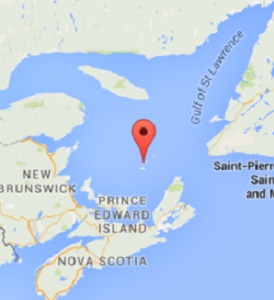
First sighting of right whales in Canadian waters triggers partial fishing closure
The federal Fisheries Department says it has spotted endangered North Atlantic right whales in Canadian waters for the first time this year. The department says two whales were seen Sunday by a surveillance aircraft in the Gulf of St. Lawrence, northeast of the Îles-de-la-Madeleine. It says fishing in the area where the whales were spotted will be closed for 15 days started Thursday at 5 p.m., and a 15-day vessel slowdown will also be in effect. video, >click to read< 18:33

Here’s what happens to federal services if public servants strike on Wednesday
The union representing over 155,000 public servants says if a deal isn’t reached with the federal government by 9 p.m. EDT on Tuesday, it will launch a strike this Wednesday. The Public Service Alliance of Canada says that negotiations have not progressed enough in recent days to call off a strike and its members are frustrated. Here’s an updated list of what services may be affected, an example, Fisheries and Oceans Canada and the Canadian Coast Guard. Fisheries and Oceans Canada’s conservation and protection program, health and safety−related fishery closures along with the Canadian Coast Guard’s search and rescue, environmental response and icebreaking services will still be running but may be operating at reduced administrative capacity. >click to read more< 18:49
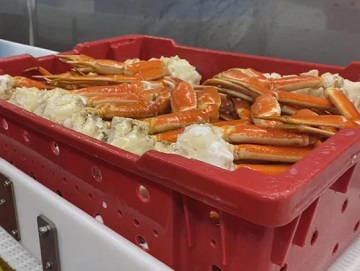
Price outlook diverges for Canada’s top 2 seafoods – Snow crab prices plunged by 60 % in 2022
Canada’s lobster industry is poised to claw its way out of a down year, say analysts, while unsold snow crab stuck in cold storage remains an anchor dragging on the bottom line. Snow crab sales sank and prices plunged 60 per cent in 2022, thanks in part to U.S. consumers who stayed away from luxury seafood as they were battered by inflation. Lobster also took a hit last year, with prices down 30 per cent. The value of Canadian live lobster exports dropped as well, but volumes actually ticked up slightly. Kelly Zhuang of World Link Food Distributors in Nova Scotia says 800 tonnes of live lobster is flown to China from Halifax and Moncton per week. And more charters are expected.>click to read< 13:55
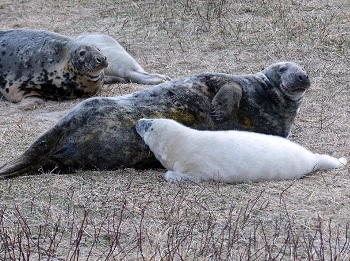
Seafood industry urges ‘extreme caution’ on controlling seals to avoid consumer backlash
Canada’s seafood industry is urging Ottawa to use “extreme caution” when considering measures to control the growing seal population, warning they could jeopardize market access and acceptance of Canadian seafood. But according to Conservative fisheries critic Clifford Small, a member of parliament from Newfoundland and Labrador, those concerns are overblown. “It is immensely important that as the government considers potential steps moving forward, its actions do not disrupt either the market access or acceptance of Canadian fish and seafood products, both internationally and domestically,” said Paul Lansbergen, president of the Fisheries Council of Canada. Lansbergen said both the U.S. and the European Union have strict rules regarding the harming of marine mammals during fishing. >click to read< 14:50
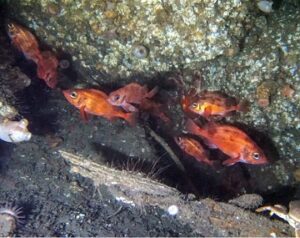
In Cod’s Shadow, Redfish Rise
In the North Atlantic, the trajectory following fisheries collapse has not been forgiving. Even decades after overfishing drove seemingly inexhaustible species like Atlantic cod off a precipice, many populations—most notably, of Atlantic cod—have remained stubbornly low. But in Canada’s Gulf of St. Lawrence, an exception to the rule is emerging from the depths. Redfish, a deep-dwelling species found in the western Atlantic from Baffin Island to New Jersey, is an unlikely hero: a scarlet groundfish the length of a bulldog sporting a faintly outraged expression and a line of spines sharp enough to draw blood. More to the point: aside from readers of Dr. Seuss, who’s even heard of a redfish? >click to read< 10:10
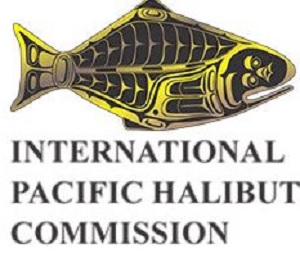
Commission cuts halibut limits across Alaska, Canada
The International Pacific Halibut Commission adopted its annual catch limits for halibut in 2023 from California to the Bering Sea at its meeting Jan. 27. Coastwide, the total constant exploitation yield, a term for how many total halibut longer than 26 inches are removed from the population, regardless of reason, is just shy of 37 million pounds, a 10% drop from 41.2 million pounds last year. Every regulatory area received a cut except for 2A, which covers California, Oregon and Washington. Area 3A, which covers the central Gulf of Alaska, and area 4A, which covers the eastern Aleutians, saw the largest cuts at 17% each. Southeast Alaska only saw a 1% cut, while the western Gulf, western Aleutians and central Bering Sea each saw 6% cuts. The Canadian coast saw a 10.3% cut. >click to read< 11:50
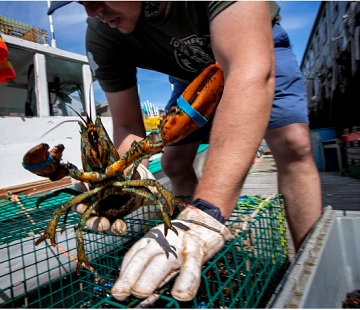
Despite a pause on new regulations, U.S. and Canadian lobstermen see big challenges ahead
After a two-year hiatus, members of the U.S. and Canadian lobster fisheries met in Portland over the weekend to discuss challenges facing their industry. Top of mind is how the industry will prepare before new federal regulations designed to protect endangered right whales begin in six years. Fisheries in Maine had late last year expressed relief about the years-long delay in the rules change included in a federal spending bill, as it bought the industry more time to research and test new fishing techniques and other measures aimed at protecting North Atlantic right whales. >click to read< 09:10
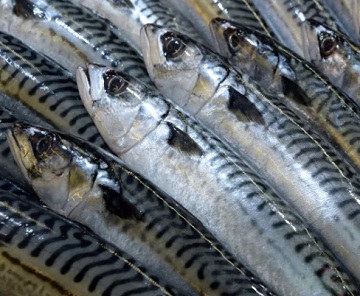
U.S. announces reduced East Coast commercial mackerel quota for 2023
The United States will proceed with a commercial fishery of the depleted East Coast mackerel stock it shares with Canada in 2023. The U.S. quota was released this week, putting pressure on Canada which has yet to decide whether it will continue a total moratorium it imposed in 2022 to help rebuild the population. The National Oceanic and Atmospheric Administration, the U.S. equivalent of the Fisheries and Oceans Canada (DFO), announced on Tuesday a total allowable catch of 3,639 metric tonnes. It was 27 per cent cut from 2022 in recognition that the transboundary stock remains in trouble and is overfished. >click to read< 19:01
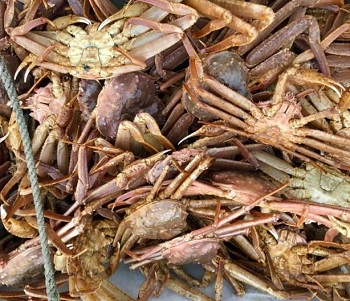
“We’re solid. We’re unified” – Inside Kodiak’s crab standoff
The nearly 6-million-pound quota was the highest in decades. And some people spent more than $100,000 to buy a permit to fish this year, said Kevin Abena, one of the leaders of the Kodiak Crab Alliance Cooperative. But fishermen’s hopes for a banner season are now in limbo, as the 130 boats in the Kodiak tanner crab fleet are on strike, holding out for higher prices from the seafood processors that typically buy, package and resell their catch. But processors and industry experts say the fishermen are fighting larger market forces that make it unlikely they’ll get much more than the $3.25 a pound that Kodiak-based plants have already offered, less than half than last year’s $8 a pound price. >click to read< 10:48






